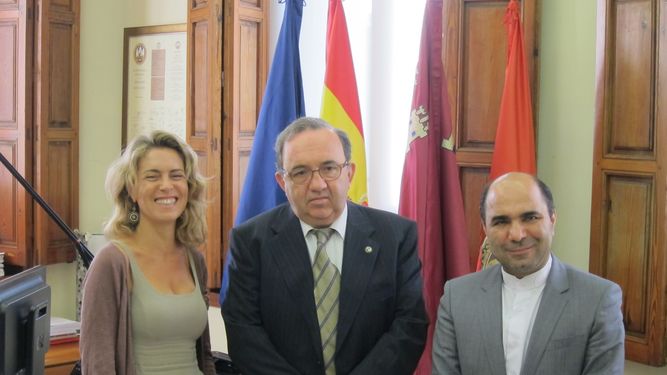África/Mozambique, Tanzania, Etiopía y Angola/Diciembre 2016/
Noticias/http://allafrica.com/
GE’s committed to Africa’s sustainable development, under the hallmarks of responsible leadership and operational excellence, has positioned skills development and talent at the heart of its business initiatives. With several training, development and leadership programmes designed to encourage GE staff to progress, the multi-national also supports the advancement of students particularly in developing economies. GE aims to build a continent where the human capital will help build a society that relies on engineering, digital technology and supply-chain service skills.
Students from African countries including Mozambique, Tanzania, Ethiopia and Angola have enrolled in a leadership programme at the African Leadership Academy (ALA) based in Johannesburg, South Africa. Through GE’s partnership with the ALA, the programme aims to create and nurture the next generation of African leaders through a unique entrepreneurial leadership programme. Up until now, 85% of the students come from disadvantaged backgrounds and are on full scholarships.
“The human capital of the region is immense and we partner with the best education institutions to support the growth of young talent. It’s part of our regional strategy and demonstrates GE’s commitment to the development of the local community,” says Bianca Tulumello, senior executive human resources manager for GE Africa.
GE is focusing on investing throughout Africa
“There is a shortage of technical skills in the workforce,” says Jay Ireland, President & CEO of GE Africa. “Only 11% of African university students are studying subjects with potentially high employability while 70% are enrolled in areas that have huge numbers of unemployed graduates.” According to statistics, there is a rapidly growing number of youth who are unemployed who lack key skills which are in demand.
Operating across a number of business sectors in Africa, the following focus areas demonstrate GE’s commitment to supporting education:
One: In Nigeria, GE officially commissioned the Lagos University Teaching Hospital (LUTH) Biomedical Training Centre, which it refurbished and equipped to build a sustainable pipeline of qualified medical engineers. This project builds on successes from Biomedical Equipment Technician Training (BMET) projects in Rwanda, Honduras, Ghana and Cambodia.
Two: In Ghana, GE provided $100,000 in grants to students of the University of Ghana studying BSc Applied Sciences to have their tuition fully paid until they complete their studies.
Three: In Angola, GE has collaborated with the Angolan government and other players in the private sector to help the country achieve its Vision 2020, with several programmes designed to support local entrepreneurs by building skills and capacity.
Four: In East Africa, GE has built a $13-million healthcare skills and training institute in Nairobi which will train about 10,000 healthcare professionals from the region in the next five years. This commitment to healthcare capacity building will help to reduce the country’s skills gap, improve job prospects and build a solid national healthcare system
Five: In Ethiopia, the GE Foundation invested $1.7-million to establish the Biomedical Equipment Training and Safe Surgery programmes. As the first of its kind in Ethiopia, the programme builds on the success of similar programs in Ghana, Nigeria, and Rwanda to support the development and training of biomedical technicians on repairing existing equipment.
Six: In Mozambique, GE invested $250 000.00 into scholarships to the University of Eduardo Mondlane students, and $250 000.00 in a science lab and capacity building at Unilurio University.
“We are a global company that operates locally, which means that we want to develop local talent close to our customers in order to deliver the best results. It is therefore a priority for us to build a strong workforce to power Africa’s growth,” says Tulumello
Fuente :
http://allafrica.com/stories/201612090704.html
Fuente imagen:
https://lh3.googleusercontent.com/n9SUjx76oRYkW6ym5H-9ogLZfVCyX7yQMi1nq-rmDy7vOyzApqE6e6VyQj0QXsTy7B9PuQ=s85













 Users Today : 3
Users Today : 3 Total Users : 35460266
Total Users : 35460266 Views Today : 4
Views Today : 4 Total views : 3418972
Total views : 3418972